Best Crypto Wallets for 2024: Secure Your Digital Assets
- September 9, 2024
- 15 min read
-
1319 reads
As cryptocurrencies continue to integrate with the global economy, finding a secure place to store your digital assets has become more crucial than ever.
Quick Answer: Best Crypto Wallets 2024
- Best for Beginners: Coinbase Wallet – User-friendly with extensive coin support
- Best for Ethereum & DeFi: MetaMask – Excellent for interacting with decentralized applications
- Best Hardware Wallet: Ledger Nano S Plus – Top-tier security for long-term storage
- Best for Mobile: Trust Wallet – Seamless mobile experience with wide coin support
- Best for Desktop: Exodus – Intuitive interface with built-in exchange features
- Best Budget Hardware Wallet: SafePal – Affordable hardware security with air-gapped technology
Whether you’re a seasoned investor or just starting your crypto journey, choosing the right wallet is essential for managing and protecting your portfolio.
In this guide, we’ll explore the best crypto wallets for 2024, helping you make an informed decision based on your unique needs.
Key Takeaways:
- Crypto wallets come in two main types: hot (online) and cold (hardware) storage
- Hot wallets offer convenience for frequent trading, while cold wallets provide enhanced security for long-term storage
- Consider factors like security features, user-friendliness, and supported cryptocurrencies when choosing a wallet
- Stay informed about the latest wallet features and security measures to protect your digital assets
Understanding Crypto Wallets
A reliable wallet is your essential tool for securely managing digital assets. Let’s dive into what crypto wallets are and why they’re crucial for your crypto journey.
What is a Crypto Wallet?
A crypto wallet is a digital tool that allows you to store, send, and receive cryptocurrencies. It can take various forms:
- Physical hardware devices
- Software applications on your mobile phone or computer
- Cloud-based solutions
The primary function of a crypto wallet is to securely manage your private keys, which are essential for accessing and controlling your digital assets.
While platforms like Venmo and Robinhood offer quick and easy ways to buy cryptocurrency with minimal technical know-how, they often lack the control and flexibility of dedicated crypto wallets.
Non-custodial wallet apps, which we focus on in this guide, give you full control over your digital assets.
Hot Wallets vs. Cold Wallets: Balancing Security and Accessibility
When choosing a crypto wallet, one of the key decisions you’ll face is whether to opt for a hot wallet or a cold wallet.
Connected to the internet
Easier to use for frequent transactions
Generally more convenient for day-to-day use
Potentially more vulnerable to online threats
Hot Wallets:
Disconnected from the internet (offline storage)
Offer enhanced security against online threats
Ideal for long-term storage of large amounts
May require additional steps for transactions
Cold Wallets:
Expert Insight:
“Cold wallets may require a few more steps than hot wallets when you want to make a transaction, so it’s important to choose between security or accessibility when comparing digital crypto wallet apps,” says Nikolov, CEO of Trading Pedia.
Crypto wallets play a crucial role in the ecosystem of digital currencies. They’re not just storage solutions; they’re your personal interface for interacting with the blockchain, enabling you to:
- Buy and sell cryptocurrencies
- Send and receive digital assets securely
- Store your cryptocurrencies safely
- Interact with decentralized applications (DApps)
- Manage multiple cryptocurrencies in one place
Whether you choose a hardware or software solution, a reliable crypto wallet is indispensable for anyone serious about participating in the world of cryptocurrencies.
Top Crypto Wallets for 2024
We’ve researched and analyzed the latest developments in the crypto wallet market to bring you the best options for 2024.
Our selection includes both hot (online) and cold (hardware) wallets to cater to different user needs and preferences.
1. Coinbase Wallet – Best for Beginners
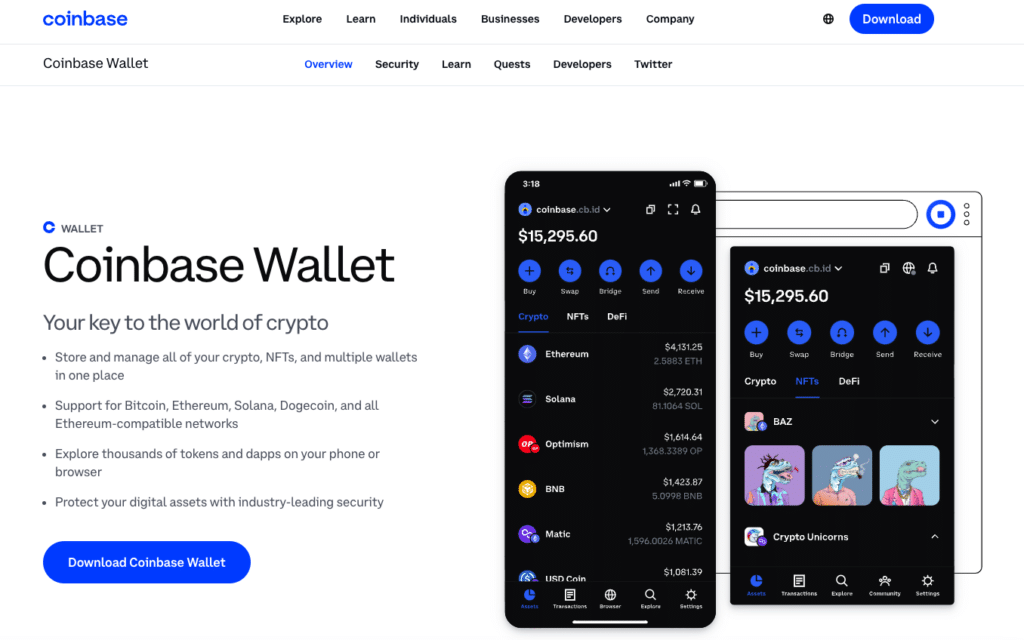
User-friendly interface
Integrated with Coinbase exchange
Supports 100,000+ crypto assets
Enhanced security features
New Smart Wallet feature
Pros:
Limited advanced features for experienced users
May have higher fees compared to some competitors
Cons:
Coinbase Wallet has established itself as a top choice for cryptocurrency newcomers. In 2024, it introduced the innovative “Smart Wallet” feature, eliminating the need for lengthy seed phrases and enhancing user experience.
New in 2024:
- Smart Wallet feature powered by “wallet as a service” technology
- Web app integration for seamless management of multiple wallets
- Pass Key technology using biometric authentication for enhanced security
2. MetaMask – Best for Ethereum and DeFi
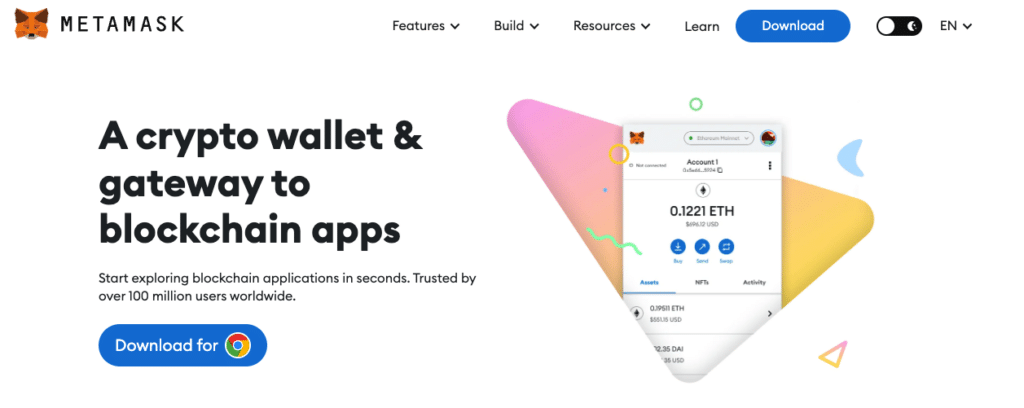
Excellent for Ethereum-based transactions
Easy access to decentralized applications (dApps)
User-friendly browser extension and mobile app
Strong community support
Pros:
Primarily focused on Ethereum and ERC-20 tokens
May require additional steps for non-Ethereum blockchains
Cons:
MetaMask continues to be a popular choice for Ethereum enthusiasts and those deeply involved in the DeFi ecosystem. Its intuitive interface and seamless integration with various dApps make it a go-to wallet for many users.
3. Ledger Nano S Plus – Best Hardware Wallet
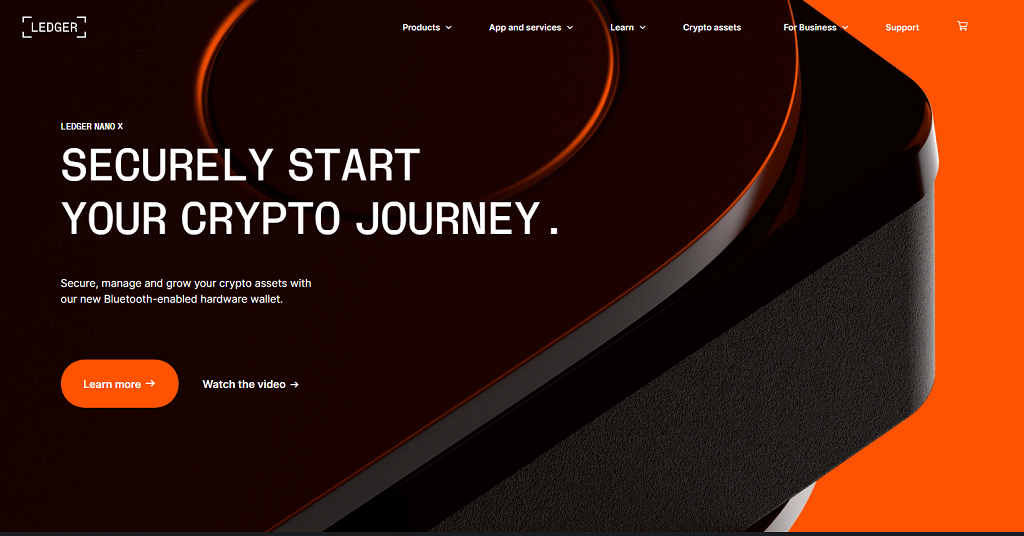
Top-tier security for long-term storage
Supports a wide range of cryptocurrencies
Compact and portable design
Regular firmware updates
Pros:
Higher upfront cost compared to software wallets
Less convenient for frequent trading
Cons:
For those prioritizing security and long-term storage, the Ledger Nano S Plus remains a top contender in 2024. Its offline storage capabilities and support for multiple cryptocurrencies make it an excellent choice for serious investors.
4. Trust Wallet – Best for Mobile

User-friendly mobile interface
Supports a wide range of cryptocurrencies
Built-in DApp browser
Integrated exchange features
Pros:
Limited desktop functionality
May not be ideal for advanced users seeking extensive features
Cons:
Trust Wallet continues to be a popular choice for mobile users in 2024, offering a seamless experience for managing various cryptocurrencies and accessing DApps directly from your smartphone.
5. Exodus – Best for Desktop Users
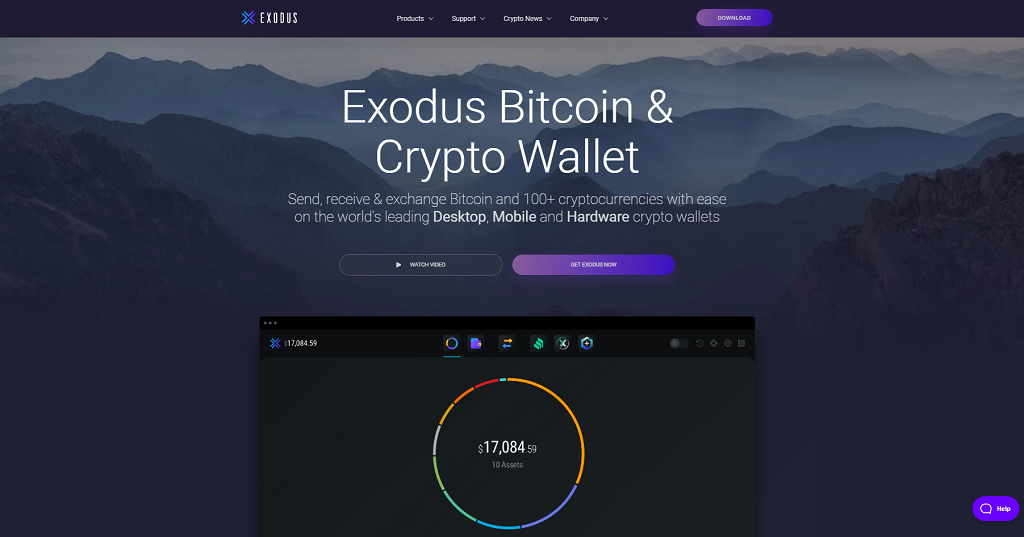
Intuitive and visually appealing interface
Supports a wide range of cryptocurrencies (145+)
Built-in exchange feature
Compatible with Trezor hardware wallet
Excellent customer support
Pros:
Closed-source software
Lack of some advanced features for power users
Cons:
Exodus continues to be a top choice for desktop users in 2024, offering a seamless experience for managing a diverse cryptocurrency portfolio. Its user-friendly interface and built-in exchange make it an excellent option for both beginners and intermediate users.
“Exodus is one of the best crypto wallets for desktop users as it offers fast transaction speeds, a lot of functionality, and ease of use,” notes Jonathan Svensson, Co-Founder of Almvest.
Key Features:
- One-click cryptocurrency exchanges within the wallet
- Real-time portfolio tracking and charts
- Integration with FTX for crypto-to-fiat exchanges
- Regular updates and responsive customer support
6. SafePal – Best Budget Hardware Wallet
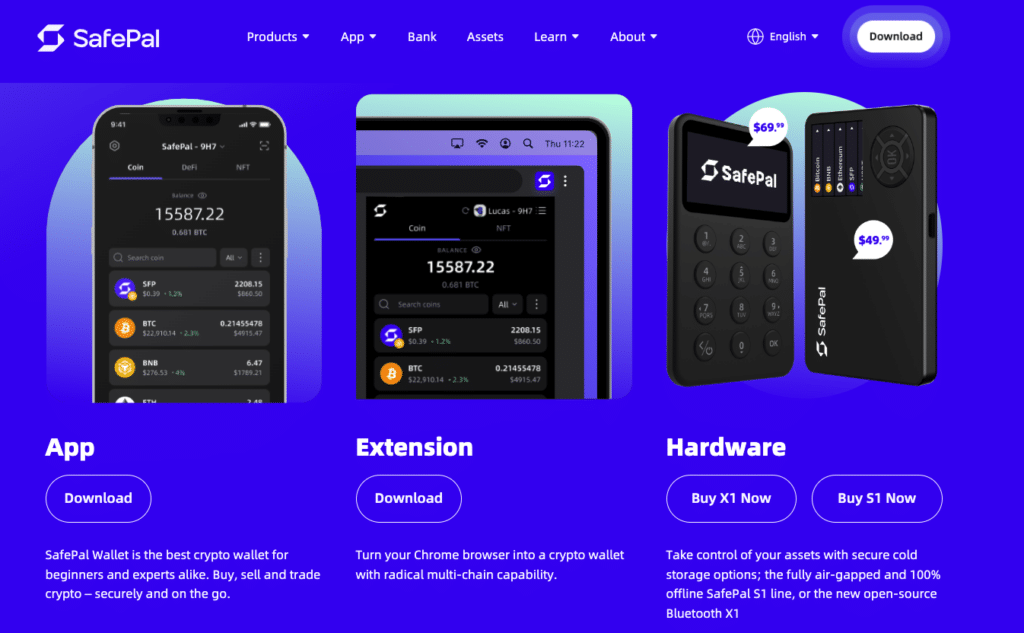
Affordable hardware wallet option
Supports 20,000+ cryptocurrencies
Completely air-gapped for enhanced security
User-friendly mobile app integration
Backed by Binance
Pros:
Less established compared to other hardware wallet brands
Limited desktop functionality
Cons:
SafePal has emerged as a compelling option for those seeking the security of a hardware wallet without breaking the bank.
In 2024, it continues to offer a unique blend of affordability and robust security features, making it an attractive choice for crypto enthusiasts on a budget.
Unique Features:
- QR code-based air-gapped signing mechanism
- Integrated decentralized exchange (DEX) in the mobile app
- Support for hardware wallet and software wallet integration
- Regular firmware updates to enhance security and add new features
Comparison of The Best Crypto Wallets
This table provides a quick comparison of the six wallets we’ve discussed, highlighting their key features, strengths, and differences.
| Wallet | Type | Best For | Supported Cryptocurrencies | Security Features | User Interface | Cost |
|---|---|---|---|---|---|---|
| Coinbase Wallet | Hot (Software) | Beginners | 100,000+ | Smart Wallet, Biometric authentication, 2FA | Very user-friendly | Free (transaction fees apply) |
| MetaMask | Hot (Software) | Ethereum & DeFi | Ethereum & ERC-20 tokens | Password protection, Custom RPC | User-friendly | Free (gas fees apply) |
| Ledger Nano S Plus | Cold (Hardware) | Long-term storage | 5,500+ | Offline storage, Secure Element chip | Requires learning curve | ~$79 (one-time purchase) |
| Trust Wallet | Hot (Software) | Mobile users | 1,000,000+ | Private keys stored locally, Passcode | Very user-friendly | Free (network fees apply) |
| Exodus | Hot (Software) | Desktop users | 145+ | Password protection, Integration with Trezor | Intuitive and visually appealing | Free (exchange fees apply) |
| SafePal | Cold (Hardware) & Hot (Software) | Budget-conscious users | 20,000+ | Air-gapped, Self-destruct mechanism | User-friendly mobile app | ~$49 for hardware wallet (Free app) |
Remember that the cryptocurrency landscape is constantly evolving, and wallet features may change over time. It’s always a good idea to visit the official websites of these wallets for the most up-to-date information before making a decision.
Factors to Consider When Choosing a Crypto Wallet
When selecting the best crypto wallet for your needs, consider the following factors:
Security features (e.g., two-factor authentication, biometrics)
Ease of use and user interface
Supported cryptocurrencies
Compatibility with your devices
Integration with exchanges and DApps
Fees and costs associated with transactions
Community support and development
Key Considerations:
Latest Trends in Crypto Wallet Security
As the cryptocurrency landscape evolves, wallet security measures are becoming increasingly sophisticated. Here are some of the latest trends in crypto wallet security for 2024:
Emerging Security Trends:
- Biometric Authentication: More wallets are incorporating fingerprint and facial recognition for enhanced security.
- Multi-Signature Support: Requiring multiple approvals for transactions adds an extra layer of security.
- AI-Powered Fraud Detection: Advanced algorithms help identify and prevent suspicious activities.
- Decentralized Recovery Solutions: Innovative methods for recovering access to wallets without compromising security.
Choosing the Right Crypto Wallet for You
Selecting the best crypto wallet in 2024 depends on your individual needs, trading frequency, and security preferences.
Whether you opt for the user-friendly Coinbase Wallet, the Ethereum-focused MetaMask, the highly secure Ledger Nano S Plus, or the mobile-optimized Trust Wallet, ensure that your choice aligns with your cryptocurrency goals and usage patterns.
Remember to stay informed about the latest developments in wallet technology and security measures. Regularly update your wallet software and always follow best practices for securing your digital assets.
With the right wallet and proper security measures, you can confidently navigate the exciting world of cryptocurrencies.
Frequently Asked Questions
What’s the difference between hot and cold wallets?
Hot wallets are connected to the internet and are typically easier to use for frequent transactions. Cold wallets, like hardware wallets, store your cryptocurrencies offline, providing enhanced security for long-term storage.
Are crypto wallets free?
Many software wallets are free to use, although they may charge transaction fees. Hardware wallets usually have an upfront cost for the device itself.
Can I store different types of cryptocurrencies in one wallet?
Yes, many wallets support multiple cryptocurrencies. However, the range of supported coins varies between wallets, so it’s essential to check compatibility before choosing a wallet.
How often should I update my crypto wallet?
It’s recommended to update your wallet software whenever new versions are released. These updates often include important security patches and new features.
What should I do if I lose access to my wallet?
If you lose access to your wallet, you can usually recover it using your seed phrase or recovery key. It’s crucial to store this information securely and never share it with anyone.




